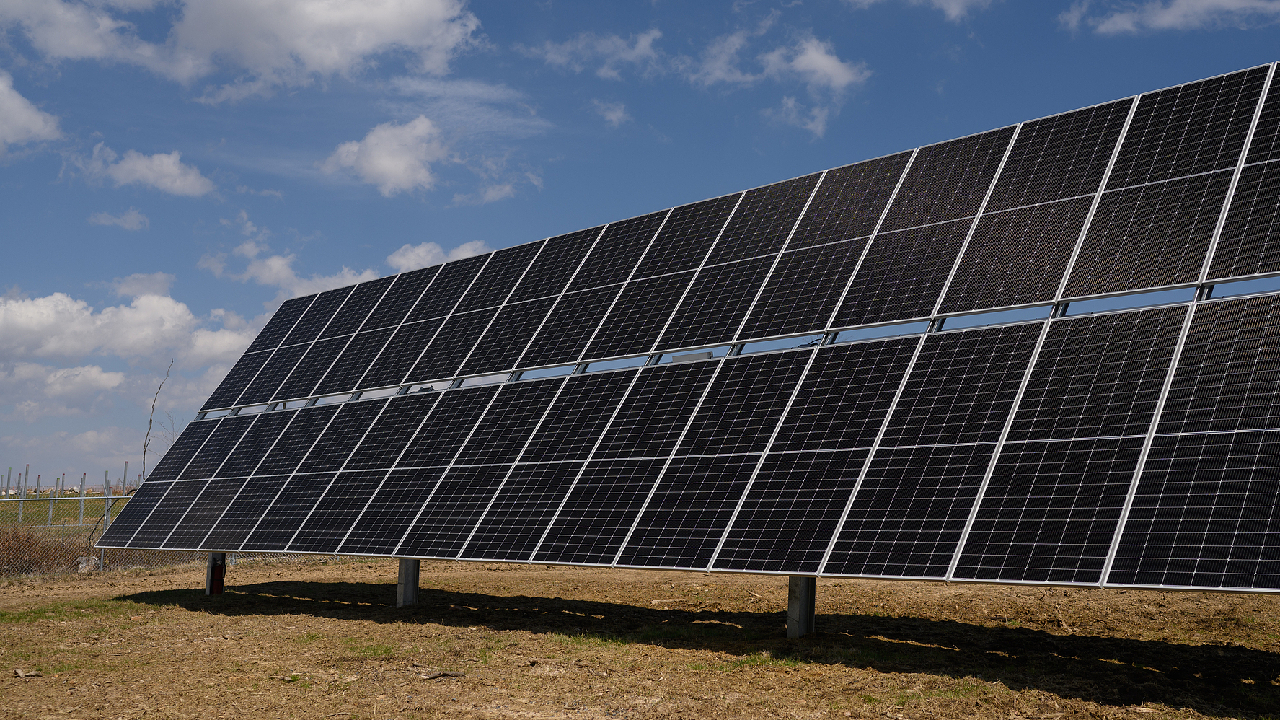
<img src='https://news.cgtn.com/news/2024-09-20/How-U-S-solar-subsidies-violate-trade-rules-distort-global-market-1x3w3dmj38s/img/271ed9f2acb04b76ad2ef95e2f9570b9/271ed9f2acb04b76ad2ef95e2f9570b9.png' alt='A photo shows solar panels at the site of a solar farm under construction on top of an old strip mine in Portage, Pennsylvania, U.S., April 25, 2022. /CFP'
The United States has aggressively expanded its solar photovoltaic (PV) industry through protectionist policies, significantly distorting global market operations, noted an article published on the website of the China Photovoltaic Industry Association (CPIA) last week. The article pointed out that, by providing substantial subsidies for domestic PV manufacturing and installation, the U.S. is violating multilateral trade rules, thereby undermining international cooperation in combating climate change.
At the core of these policies is the Inflation Reduction Act (IRA) of 2022, which allocates a staggering $369 billion to support clean energy investments. The U.S. federal government offers tax credits up to 30 percent of investment for companies in the solar PV supply chain, encompassing raw materials, cells, modules and supporting products. In the PV manufacturing sector alone, these credits have exceeded $10 billion, ensuring U.S. firms can expand their operations even when they face revenue losses.
First Solar, a leading U.S. solar company, reported a net profit of $830.8 million in 2023, with 79 percent of that income attributed to government grants. In 2024, First Solar received $281.9 million in subsidies, reversing what would have otherwise been a financial loss. The company is now expanding its PV module manufacturing in Ohio and building new factories in Alabama and Louisiana, supported by a $2.4 billion investment aimed at quadrupling its production capacity.
Raw material suppliers are also beneficiaries. For example, Highland Materials received $255.6 million to produce solar-grade polysilicon in Tennessee, and SolarCycle secured $64 million for solar glass production in Georgia. The U.S. Department of Energy’s Loan Programs Office provided a $1.45 billion loan guarantee to Qcells, enabling it to establish the largest silicon ingot and wafer plant in the country, closing a critical gap in the domestic PV supply chain.
The IRA further incentivizes PV power generation through four types of tax credits. Projects utilizing a certain percentage of U.S.-made steel, iron or manufactured goods qualify for additional credits, a stipulation that likely violates the World Trade Organization’s (WTO) national treatment principle, which mandates equal treatment for imported and domestic goods.
Moreover, state and local governments have introduced 419 state-level incentives for the solar industry, including rebates, loans, property tax breaks and direct grants. In Colorado, for instance, various rebate programs offer substantial financial support for both commercial and residential PV installations, while the Property Assessed Clean Energy financing program allows commercial property owners to finance 100 percent of renewable energy projects’ upfront costs. These state-level measures further bolster the U.S. solar sector at the expense of fair competition.
Ironically, while the U.S. has repeatedly accused China of excessive subsidies in the solar industry, it has been implementing protectionist measures on a much larger scale. According to the Solar Energy Industries Association, by 2026, the U.S. solar module production capacity is projected to exceed 120 GW, triple its domestic demand. This overcapacity, driven by discriminatory subsidies, threatens the healthy development of the global PV industry.
China has raised concerns over the U.S. policies, formally lodging a complaint with the WTO in March 2024. After failed consultations, China requested a WTO panel to review the case in July. The subsidies, particularly those tied to the use of domestic products, represent clear violations of the WTO’s rules on national treatment, exacerbating global trade tensions.
The U.S. solar subsidy regime, exemplified by the Inflation Reduction Act, not only contravenes international trade agreements but also distorts the global solar market, hindering international cooperation on clean energy transition.